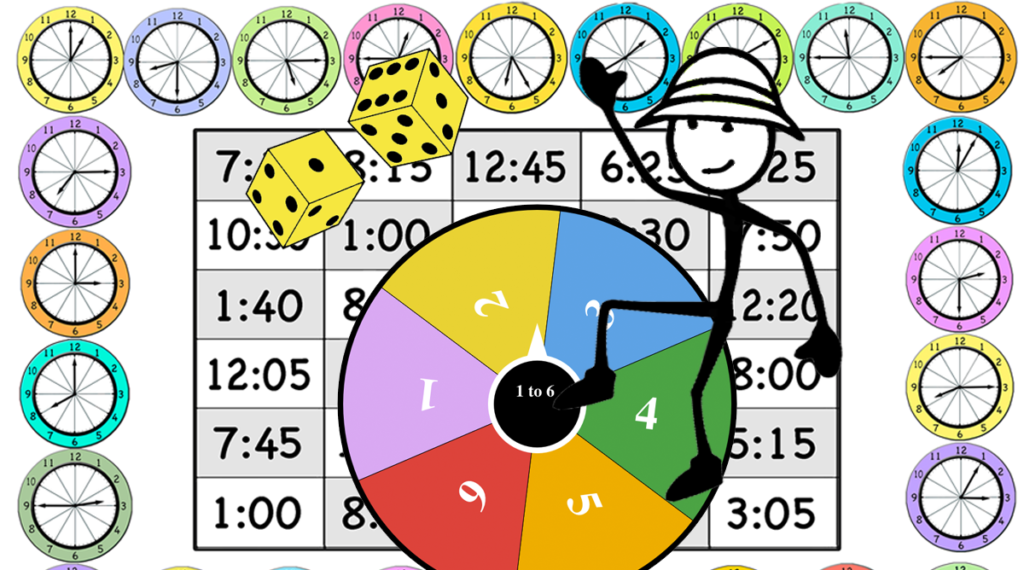Learning time is often confusing for students as the concept of time is still abstract for many of them as it doesn’t connect to the other concepts of measurement. The students cannot see, touch, or weigh time. It is hard to visualize and compare time. Time does not use the standard place value. An hour is not 10 or 100 minutes. However, we can make sure that students are successful by using a variety of activities and by making sure that there are no misconceptions or gaps left in their learning. Today I would like to discuss the concepts AM/PM, the 24 hour clock, and one of the most challenging concepts Elapsed Time. For ideas and activities about starting to teach time and reading the analog clock check out the previous post Teaching time, tips, activities, games, print and digital

AM/PM
Before teaching elapsed time it is important to make sure that all the students understand the AM/PM concept, and the 24 hour clock. Students learn the AM/PM concept in grade 2, however, it’s always good to revise it before you move on to elapsed time.

Below are some activities you can do to practice AM/PM
- Look at the schedule of the day and mark the times as AM or PM. Arrange the times on a time number line. You can do this every day, on a laminated time number line, and have discussions and clear misconceptions. The time number line can be vertical or horizontal.
- Ask the students to write some of their AM and PM weekend or weekday activities. Have the students arrange their activities on a time number line.
- Have students write down activities and ask their partners to guess if they are AM or PM. Have students announce an activity and the time while the rest of the class put up an AM or PM sign. (Easy to make with popsickle sticks)

24 Hour Clock
When students understand the AM/PM concept you can move on to the 24 hour clock concept.

Below are some activities you can do with students to practice the 24 hour clock concept.
- Give the students a clock and ask them to complete the PM hours in a 24 hour clock form.

- Give the students clocks marked AM/PM and ask them to write the time in the 24 hour clock form.

Below are some games that you can play to practice the 24 hour clock. The games come in two versions, simple to just practice reading the clock and am/pm to 24-hour clock practice.

Elapsed Time
Elapsed time is the amount of time that passes between one time and another. We can use clocks and time number lines to calculate the elapsed time. Use an interactive clock to calculate the elapsed time. Toy theatre has a great one. You can also use a gear clock in which both hands move.

Below are some activity ideas that you can do with your students.
- Start slow, give the students a gear clock or use the interactive virtual clock. Ask them to show a specific time. then ask them what the time will be in one hour. Show it on the clock, write it. What time was it one hour before? Do the same with half an hour before and after, 15 minutes, 2 hours and 20 minutes and so on.

- Have the students find the elapsed time between two clocks. Make sure AM/PM is marked on the clocks. They can use a clocks or a number line.

- Give the students problems in which the staring time is given along with the elapsed time and they need to find the ending time. Use the number line to mark and add the elapsed time.

- Solve many word problems using clocks or number lines. To make sure that the students understand how the number line works give them different times to mark on the number line. Use AM/PM times and 24 hour clock times.
- As the students to plan the perfect summer day/or school day on a number line, decide the activities and the duration.

Once the problems become more complicated the students will calculate the elapsed time in parts like below. They can make a T-chart or just organize the information in any way they prefer.

I have created a collection of print and digital (google slides) activities like the ones above to practice elapsed time and more. The premium version includes:
- Explanations
- AM/PM activities
- 24 hour clock activities
- Starting with elapsed time-adding time ,time before and after
- Finding times on the number line.
- Measuring elapsed time between clocks.
- Word problems – measuring elapsed time in parts, finding the end time.
- Challenge problems
Below is a smal sample.

The premium version includes 100 digital and 80 print activity cards.
Find the free and premium version below.

